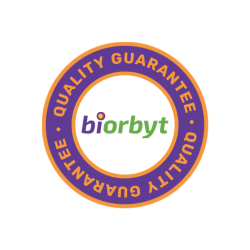You have no items in your shopping cart.
Cart summary

F(ab')2 Guinea Pig IgG (H&L) antibody
Catalog Number: orb348130
| Catalog Number | orb348130 |
|---|---|
| Category | Antibodies |
| Description | F(ab')2 Guinea Pig IgG (H&L) antibody |
| Species/Host | Goat |
| Clonality | Polyclonal |
| Tested applications | ELISA, IHC, WB |
| Reactivity | Guinea pig |
| Isotype | IgG F(ab')2 |
| Immunogen | Guinea Pig IgG whole molecule |
| Concentration | 1.0 mg/mL |
| Dilution range | ELISA: 1:20,000 - 1:100,000, IHC: 1:1,000 - 1:5,000, WB: 1:2,000 - 1:10,000 |
| Form/Appearance | Liquid (sterile filtered) |
| Purity | This product was prepared from monospecific antiserum by immunoaffinity chromatography using Guinea Pig IgG coupled to agarose beads followed by pepsin digestion and chromatographic separation. Assay by immunoelectrophoresis resulted in a single precipitin arc against anti-Goat Serum, Guinea Pig IgG and Guinea Pig Serum. No reaction was observed against anti-Pepsin and anti-Goat IgG F(c). |
| Conjugation | Unconjugated |
| Storage | Store vial at 4° C prior to opening. This product is stable for several weeks at 4° C as an undiluted liquid. Dilute only prior to immediate use. For extended storage aliquot contents and freeze at -20° C or below. Avoid cycles of freezing and thawing. |
| Buffer/Preservatives | 0.01% (w/v) Sodium Azide |
| Alternative names | Goat F(ab')2 Anti-Guinea Pig IgG Antibody, Goat F( Read more... |
| Note | For research use only |
| Application notes | Suitable for immunomicroscopy and flow cytometry or FACS analysis as well as other antibody based fluorescent assays requiring extremely low background levels, absence of F(c) mediated binding, lot-to-lot consistency, high titer and specificity. The maximum amount of reagent required to stain 1 x 10E6 cells in flow cytometry is approximately 1.0 µg of antibody. Lesser amounts of reagent may be sufficient for staining. Optimal titers for other applications should be determined by the researcher. As a general guideline dilutions of 1:100 to 1:250 should be suitable for most applications. |
| Expiration Date | 12 months from date of receipt. |
F(ab')2 Guinea Pig IgG (H&L) antibody [orb346758]
ELISA, IHC, WB
Guinea pig
Rabbit
Polyclonal
Unconjugated
20 mgF(ab')2 Guinea Pig IgG (H&L) antibody (FITC) [orb346760]
FC, FLISA, IF
Guinea pig
Rabbit
Polyclonal
FITC
20 mgF(ab')2 Guinea Pig IgG (H&L) antibody (Peroxidase) [orb346762]
ELISA, IHC, WB
Guinea pig
Rabbit
Polyclonal
HRP
20 mgF(ab')2 Guinea Pig IgG (H&L) antibody (TRITC) [orb348129]
FC, FLISA, IF
Guinea pig
Goat
Polyclonal
TRITC
1 mgF(ab')2 Guinea Pig IgG (H&L) antibody (FITC) [orb348131]
FC, FLISA, IF
Guinea pig
Goat
Polyclonal
FITC
1 mg
Submit a review
Filter by Rating
- 5 stars
- 4 stars
- 3 stars
- 2 stars
- 1 stars
